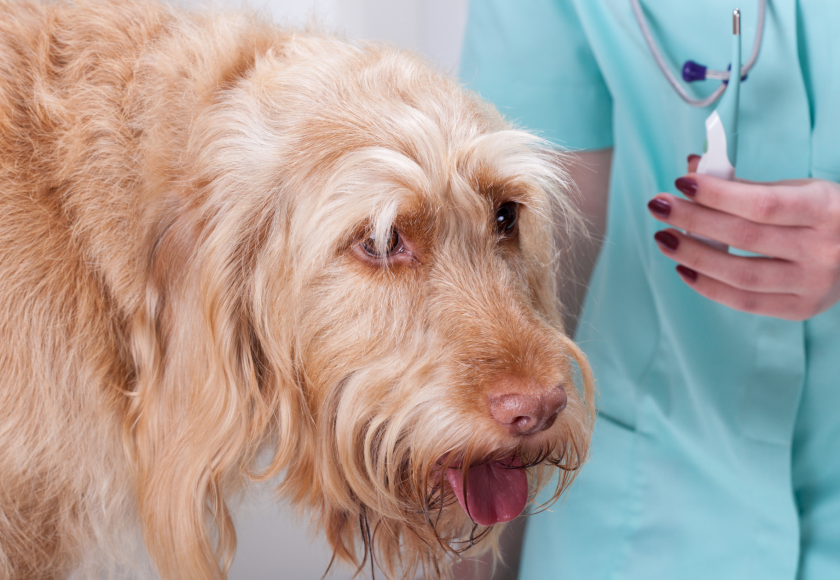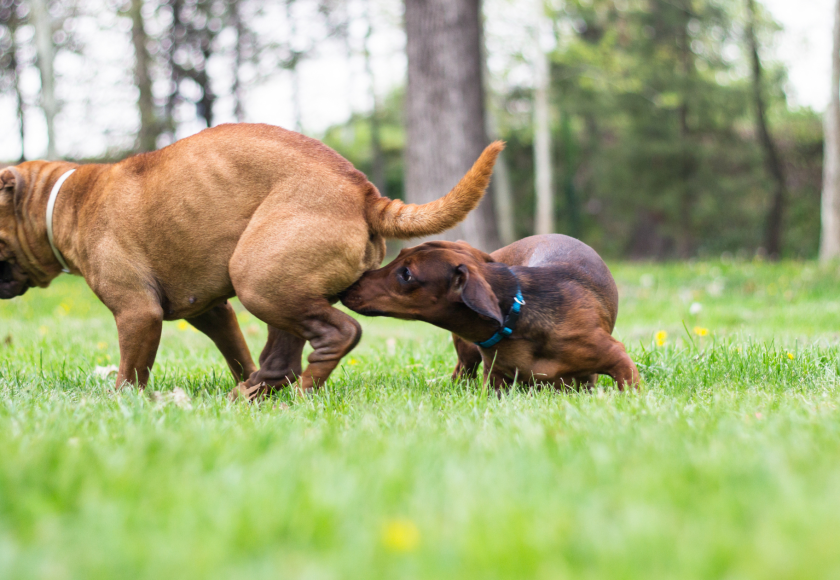Dog incontinence can be a troublesome and complicated problem for pet owners. Although it may seem like a minor inconvenience, untreated incontinence can cause discomfort and even serious complications for your dog.
If your dog is experiencing urinary incontinence, it is important to consider the causes, symptoms, and treatment options for dog urinary incontinence to better understand and manage this common condition.
Table of contents
Why does my dog not hold its urine?
If your dog is not holding its urine, here are some possible reasons:
- Hormonal imbalance. Due to hormonal changes, e.g., related to castration, dogs may experience urinary incontinence because bladder control may weaken after the procedure. Dogs may begin to urinate frequently and involuntarily (e.g., while sleeping). Meanwhile, a dog may urinate frequently in small amounts due to prostate diseases, which can be treated by neutering the animal.
- Urinary tract infections. Urinary tract infections can cause inflammation and irritation, which can lead to involuntary leakage, painful urination, and discolored urine. In the case of infection, a previously healthy and physically strong dog may begin to lose control of its bladder.
- Neurological problems. Damage to the nerves that control the bladder can cause a dog to lose control of its bladder. In the case of nerve damage, the dog urinates frequently, the amount of urine changes, the dog cannot hold its urine or holds it for too long and cannot urinate.
- Age-related urinary incontinence in dogs develops due to muscle weakness. Older dogs may experience urinary incontinence due to weakened bladder muscles (sphincters), making it more difficult for them to control urination.
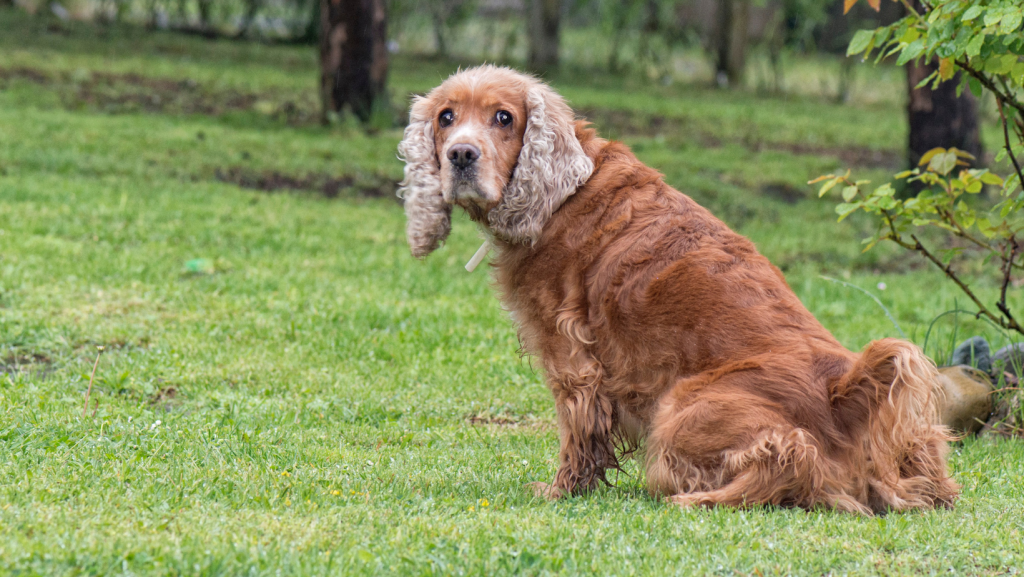
How to recognize urinary incontinence in dogs?
If your dog is not urinating, you as owners should notice the following symptoms:
- Urine leakage or dripping while sleeping or resting
- Excessive licking of the genital area
- Frequent accidents involving urination in the home
- Urine odor on their fur, bedding, carpet, or bedding
If you notice any of these symptoms in your dog, it is important to consult your veterinarian so that they can make a proper diagnosis and prescribe a treatment plan.
What to do and how to help if your dog has urinary incontinence?
If a dog is unable to hold its urine, treatment depends on the underlying cause of the condition. Some common treatment options include:
- Hormone replacement therapy: For dogs with hormonal imbalances, replacing missing hormones can help improve bladder control. This type of therapy should help combat urinary incontinence in dogs after castration. Hormone therapy can also be used for prostate diseases that cause frequent urination, but the benefits and harms of hormone therapy to the body must always be weighed.
- Antibiotics and anti-inflammatory drugs: if a urinary tract infection is causing incontinence, antibiotics can help clear up the infection and reduce symptoms. This type of treatment is only prescribed after all the necessary tests have been performed and the dog has been diagnosed with bladder inflammation (cystitis), urethritis, or another infectious disease of the urinary system.
- Other medications: In modern veterinary medicine, there are several medications that can help strengthen the bladder muscles and control accidental leakage. Medications help if the dog urinates frequently, if the dog is old and cannot hold its urine, and various preparations of this type also help to prevent the dog from urinating in the house.
- Surgery: In some cases, surgical intervention may be necessary to address the underlying structural problems causing urinary incontinence.
In any case of treatment, it is extremely important to work closely with your veterinarian to determine the best course of treatment for your dog’s urinary incontinence. With proper care, most dogs with urinary incontinence can live happy, high-quality, healthy lives.
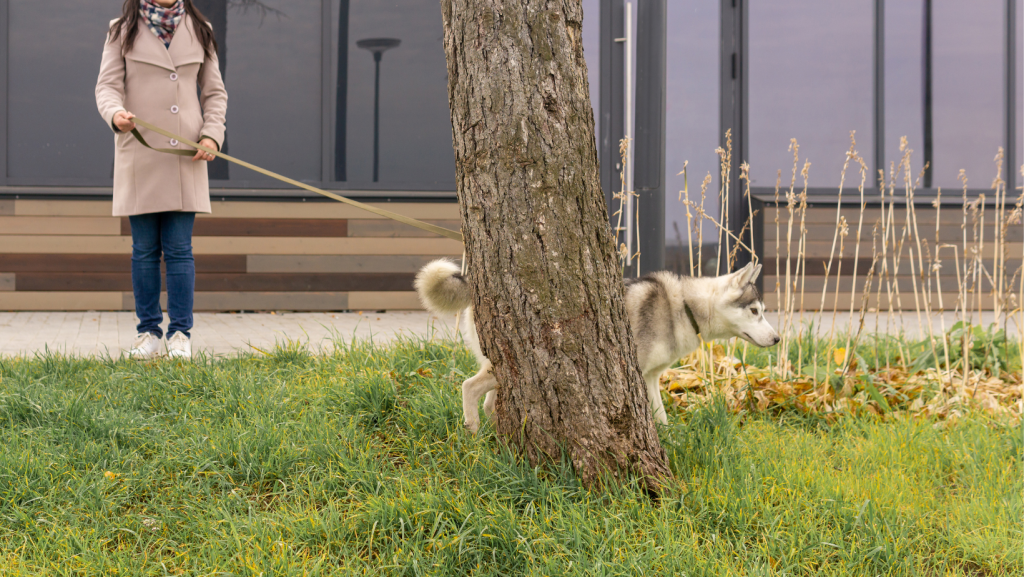
Why does my dog urinate frequently?
Frequent urination in dogs can be a common problem that owners may notice in their pets. It can be caused by various factors, such as health conditions, diet, or even behavioral issues. If your dog is urinating frequently and doing so more often than usual, it is important to pay attention to other symptoms and consult with your veterinarian to determine the underlying cause.
Urinary tract infection
One of the most common medical problems that can cause a dog to urinate frequently is a urinary tract infection. Urinary tract infections (inflammation of the dog’s bladder) are caused by bacteria entering the urinary tract and can cause symptoms such as frequent urination, urgency, and discomfort when urinating. Other health conditions that can cause frequent urination in dogs include canine diabetes, kidney disease, and bladder stones.
Dog nutrition
Specialists at the Begemotas Veterinary Clinic note that even without medical conditions, a dog’s diet can also affect frequent urination. A dog may urinate frequently if it is on a diet high in salt or protein. On such a diet, the dog may drink more water and subsequently urinate more frequently. It is the responsibility of a responsible owner to ensure that their dog has a balanced diet that meets its nutritional needs and does not cause excessive thirst.
Anxiety, stress, or agitation
Behavioral problems can also contribute to frequent urination in dogs. Some dogs may urinate more frequently due to anxiety, stress, or excitement. If your dog is urinating too often, too much, or inappropriately, it is important to rule out any underlying health issues and address any behavioral issues with the help of a professional trainer or behaviorist.
Oncological diseases
Although less common, cancer can also cause blood in a dog’s urine. Tumors in the urinary tract can cause bleeding, as well as other symptoms such as frequent urination or difficulty urinating.
Veterinarians emphasize that frequent urination in dogs can be a sign of a more serious underlying problem, so it is important to monitor your dog’s behavior and consult with your veterinarian if you notice any changes in their urination habits. With proper diagnosis and treatment, you can help your dog feel more comfortable and live a better quality of life.
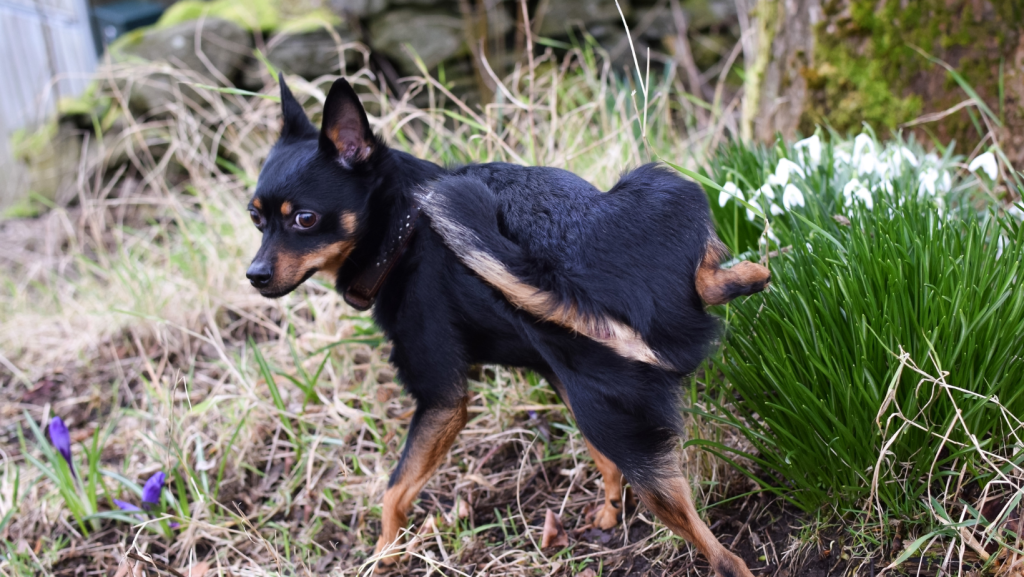
What can you do to prevent your dog from urinating in the house?
One of the best ways to stop your dog from urinating in the house is to learn and understand the underlying cause of this behavior. Here are some tips and strategies to help you solve this problem and prevent your dog from urinating in the house:
1. Establish a routine. Dogs thrive on routine, so it is essential to take your dog outside regularly, especially after meals, playtime, and sleep. This will help them establish a consistent toilet schedule.
2. Use positive reinforcement. When your dog goes to the toilet outside, praise and reward him with treats or verbal praise. This will reinforce good behavior and encourage your dog not to urinate indoors, but to continue to urinate outside.
3. Clean up accidents immediately. If your dog has an accident in the house, it is important to clean it up immediately to remove any lingering odors and minimize the chance of the scent being absorbed, which may encourage them to urinate in the same spot again. If you are unable to do this immediately, we recommend purchasing urine odor eliminators from a veterinary clinic or pharmacy.
4. Restrict access to certain areas. If your dog does not urinate anywhere in the house but has a specific place where it tends to urinate, try to restrict its access to that area until it develops better toilet habits.
5. Consult your veterinarian. If you have tried various training methods and still have problems with your dog urinating in the house, it may be helpful to consult your veterinarian. Dog health specialists can rule out any underlying medical problems that may be causing your dog’s inappropriate behavior.
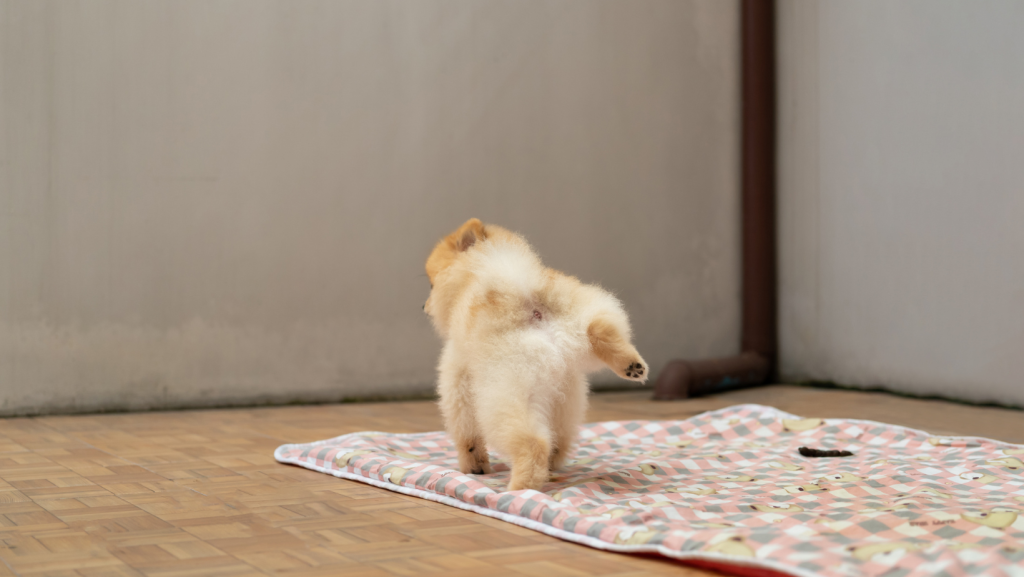
Why visit a veterinary clinic?
In summary, dog incontinence and frequent urination are common and treatable conditions that can significantly affect your dog’s quality of life. By understanding the causes, symptoms, and treatment options for why your dog is incontinent or urinates frequently, you can help your furry friend live comfortably and happily.
The specialists at Begemotas Veterinary Clinic will examine your pet, consult with you, perform all necessary tests, and prescribe the best treatment plan for your four-legged family member. The veterinarian will not only take care of your pet, but will also answer all your questions about treatment and care. If you, as the owner, have any questions about your pet’s health, we invite you to ask them during the examination and consultation.



